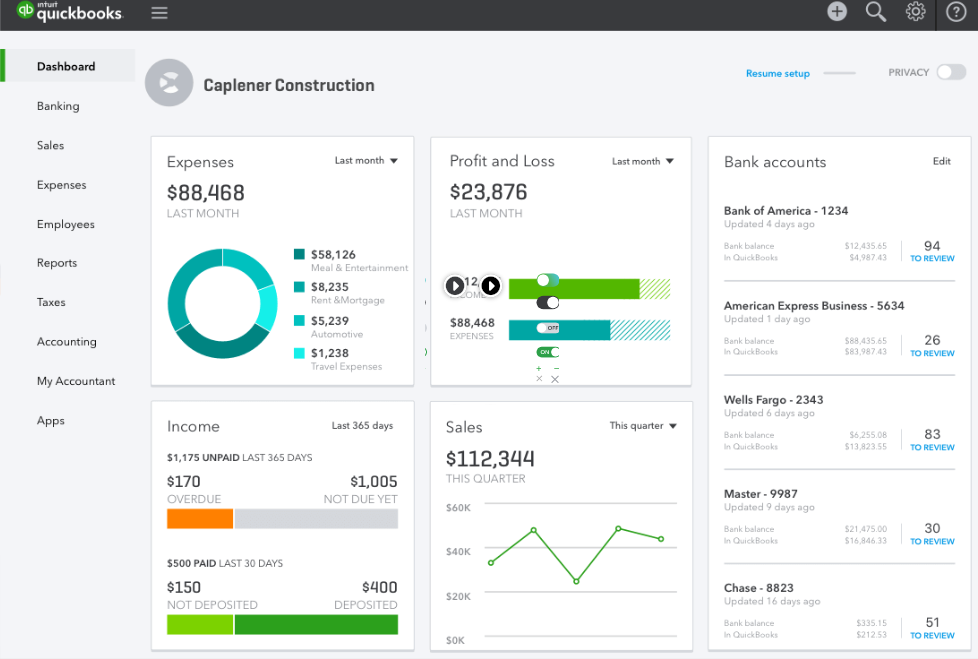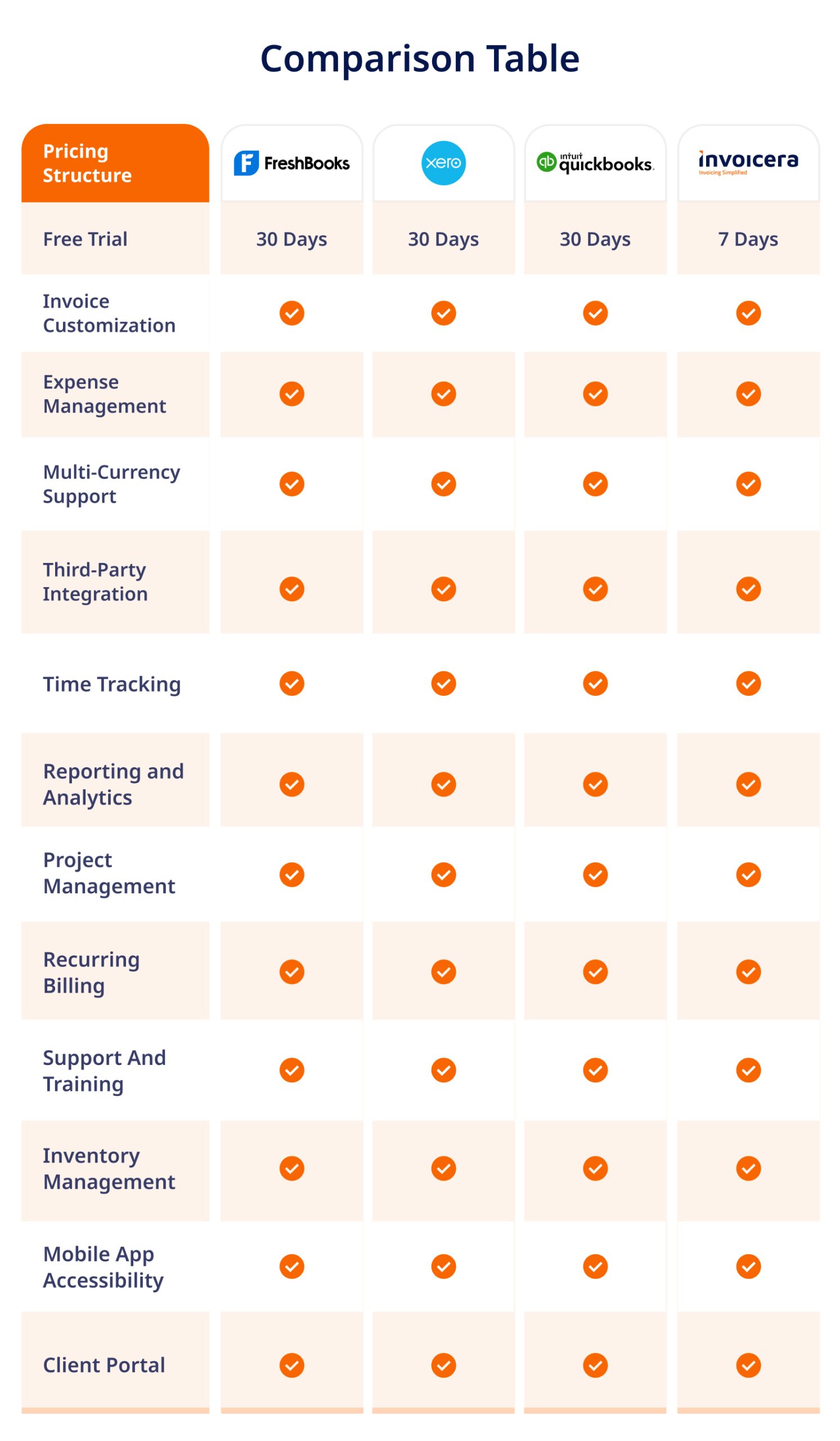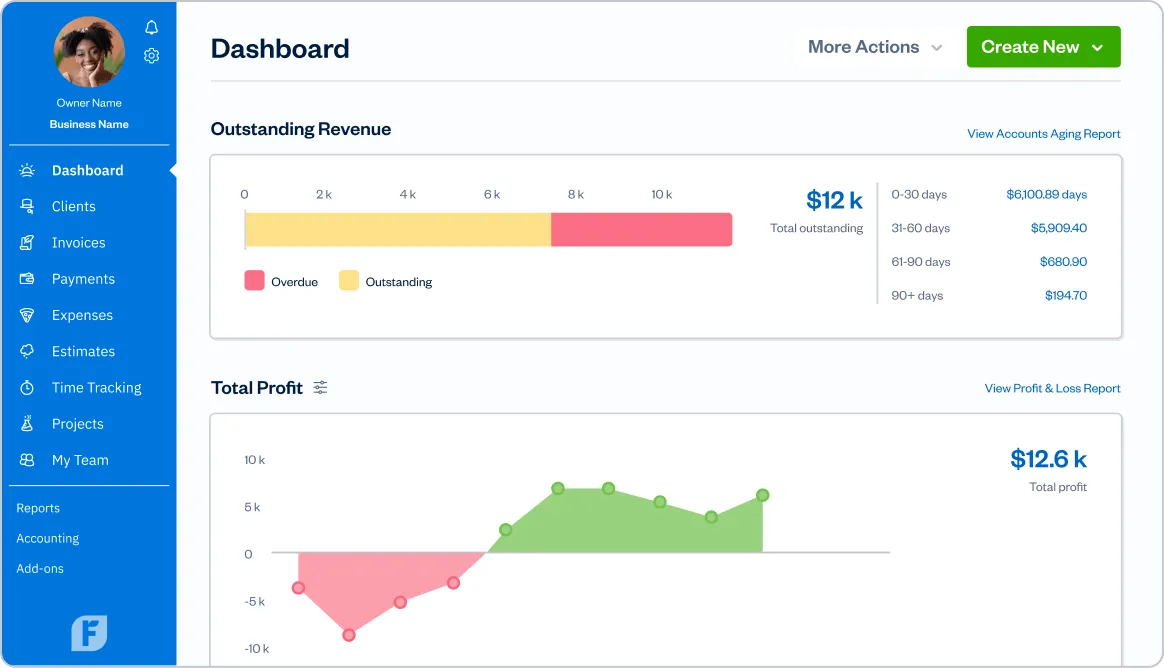Choosing the right accounting software is crucial for business success. FreshBooks and QuickBooks are two popular options.
Both offer robust features, but which one suits your needs best? Comparing FreshBooks and QuickBooks helps you understand their strengths and weaknesses. This comparison provides clarity on which software aligns with your business goals. You’ll discover how each platform handles invoicing, expense tracking, and reporting.
With this information, you can make an informed decision. Whether you’re a freelancer or a small business owner, this guide will help you choose the right tool. Let’s dive into the detailed comparison of FreshBooks and QuickBooks.

Credit: www.timnoetzel.com
Introduction To Freshbooks And Quickbooks
Choosing the right accounting software can be challenging. FreshBooks and QuickBooks are two popular choices. Both have unique features and cater to different needs.
Brief History
FreshBooks started in 2003. It focused on making invoicing easy for small businesses. Mike McDerment and his team wanted to simplify accounting for entrepreneurs.
QuickBooks was launched in 1983. Intuit created it to help small business owners manage their finances. Over the years, it has evolved into a comprehensive accounting tool.
Target Audience
FreshBooks is ideal for freelancers, small business owners, and service-based businesses. It offers an intuitive interface and easy-to-use features. Creatives and consultants find it particularly useful.
QuickBooks caters to a broader audience. It suits small to medium-sized businesses across various industries. It offers advanced features that can handle complex accounting needs.
| Feature | FreshBooks | QuickBooks |
|---|---|---|
| Ease of use | High | Medium |
| Target users | Freelancers, Small Businesses | Small to Medium Businesses |
| Invoicing | Strong | Good |
| Advanced features | Limited | Extensive |
- FreshBooks offers a user-friendly interface.
- QuickBooks provides more advanced accounting features.
- Evaluate your business needs.
- Consider ease of use.
- Assess the required features.

Credit: www.invoicera.com
Key Features Comparison
Choosing between FreshBooks and QuickBooks can be tough. Both offer unique features that cater to different business needs. This section will help you understand the key features of each. Let’s dive into their invoicing capabilities and expense tracking features.
Invoicing Capabilities
FreshBooks offers robust invoicing capabilities. It allows for quick and easy creation of professional invoices. Users can customize their invoices with logos and colors. You can also set up recurring invoices and auto payment reminders.
QuickBooks also provides strong invoicing features. Users can send customized invoices with their brand logo. It supports batch invoicing, which saves time for businesses with many clients. QuickBooks also offers automatic payment reminders.
| Feature | FreshBooks | QuickBooks |
|---|---|---|
| Customizable Invoices | Yes | Yes |
| Recurring Invoices | Yes | No |
| Auto Payment Reminders | Yes | Yes |
| Batch Invoicing | No | Yes |
Expense Tracking
FreshBooks offers easy expense tracking. You can snap photos of receipts and log them quickly. It also allows you to categorize expenses for better organization. Another great feature is the ability to track billable hours as expenses.
QuickBooks excels in expense tracking. Users can connect their bank accounts for automatic expense updates. QuickBooks also offers robust categorization and tagging of expenses. This ensures easy tracking and reporting.
| Feature | FreshBooks | QuickBooks |
|---|---|---|
| Receipt Photo Capture | Yes | Yes |
| Expense Categorization | Yes | Yes |
| Bank Account Integration | No | Yes |
| Billable Hours Tracking | Yes | No |
Pricing Plans Analysis
Choosing the right accounting software often depends on the pricing plans. Let’s compare the subscription tiers and value for money of Freshbooks and Quickbooks. This analysis will help you understand which software fits your budget and needs better.
Subscription Tiers
Both Freshbooks and Quickbooks offer multiple subscription tiers to cater to different business needs. Here’s a comparison of their basic and premium plans:
| Plan | Freshbooks | Quickbooks |
|---|---|---|
| Basic | Lite – $15/month | Simple Start – $25/month |
| Mid-tier | Plus – $25/month | Essentials – $50/month |
| Premium | Premium – $50/month | Plus – $80/month |
Freshbooks offers three main plans: Lite, Plus, and Premium. Quickbooks also offers three plans: Simple Start, Essentials, and Plus. Each plan includes different features and user limits.
Value For Money
When it comes to value for money, consider the features included in each plan:
- Freshbooks Lite: Ideal for freelancers. Includes invoicing, expense tracking, and time tracking.
- Quickbooks Simple Start: Suitable for small businesses. Includes income and expense tracking, invoicing, and receipt capture.
- Freshbooks Plus: Best for growing businesses. Adds features like project management and advanced reporting.
- Quickbooks Essentials: Adds bill management and time tracking. Good for businesses with more complex needs.
- Freshbooks Premium: Suited for larger businesses. Includes all features and priority support.
- Quickbooks Plus: Offers inventory tracking and project profitability. Ideal for businesses with inventory needs.
Freshbooks generally offers lower-priced plans with essential features. Quickbooks provides more comprehensive plans but at a higher price point. Assessing your business needs and budget will help you determine which software offers better value for money.
User Experience And Interface
Choosing the right accounting software can be a daunting task. The user experience and interface play a big role in this decision. Two popular options, FreshBooks and QuickBooks, each offer unique features. Here, we’ll dive into their user experience and interface to help you decide which is best for your needs.
Ease Of Use
FreshBooks is known for its simple and intuitive interface. It’s designed with small business owners in mind. The dashboard is clean and easy to navigate. Users can quickly find what they need without getting overwhelmed by too many options.
QuickBooks, on the other hand, offers a more robust set of features. The interface can be overwhelming for beginners. Yet, it offers powerful tools for those who need them. QuickBooks provides more customization options, which can be both a strength and a weakness.
Here is a quick comparison:
| Feature | FreshBooks | QuickBooks |
|---|---|---|
| User Interface | Simple, Clean | Feature-Rich, Complex |
| Ease of Navigation | Very Easy | Moderate |
| Customization | Limited | Extensive |
Mobile App Functionality
FreshBooks offers a user-friendly mobile app. It allows users to manage invoices, track time, and capture expenses on the go. The app is known for its ease of use and streamlined interface.
QuickBooks also provides a comprehensive mobile app. It offers more advanced features such as mileage tracking and receipt scanning. The app is powerful but can be a bit complex for new users.
Let’s compare their mobile app features:
- FreshBooks Mobile App:
- Invoicing
- Time Tracking
- Expense Capture
- QuickBooks Mobile App:
- Mileage Tracking
- Receipt Scanning
- Expense Management
Customer Support And Resources
Choosing the right accounting software goes beyond features and pricing. Customer support and learning resources are vital for a smooth experience. Both FreshBooks and QuickBooks offer various support options. Let’s dive into how they compare.
Support Channels
FreshBooks offers support through multiple channels:
- Email Support
- Phone Support
- Live Chat
QuickBooks provides a wide range of support channels as well:
- Email Support
- Phone Support
- Live Chat
- Community Forum
Both platforms have quick response times. Phone support is available during business hours. Live chat is accessible for immediate assistance. Community forums in QuickBooks help find solutions from other users.
Learning Resources
FreshBooks provides a variety of learning materials:
- Knowledge Base
- Webinars
- Video Tutorials
- Blog Articles
QuickBooks also offers extensive learning resources:
- Knowledge Base
- Webinars
- Video Tutorials
- Blog Articles
- Guided Tours
Both platforms cover essential topics. Webinars and video tutorials explain complex features. Blog articles offer tips and tricks. QuickBooks includes guided tours for new users.
Here’s a quick comparison:
| Feature | FreshBooks | QuickBooks |
|---|---|---|
| Email Support | Yes | Yes |
| Phone Support | Yes | Yes |
| Live Chat | Yes | Yes |
| Community Forum | No | Yes |
| Webinars | Yes | Yes |
| Video Tutorials | Yes | Yes |
| Blog Articles | Yes | Yes |
| Guided Tours | No | Yes |

Credit: www.freshbooks.com
Frequently Asked Questions
What Is The Main Difference Between Freshbooks And Quickbooks?
FreshBooks is ideal for freelancers and small businesses. QuickBooks, on the other hand, is suited for medium to large businesses. Both offer robust accounting features.
Which Software Is Easier To Use, Freshbooks Or Quickbooks?
FreshBooks is more user-friendly and intuitive. QuickBooks has a steeper learning curve but offers more advanced features.
Can Freshbooks And Quickbooks Integrate With Other Apps?
Yes, both FreshBooks and QuickBooks integrate with numerous third-party apps. These integrations enhance their functionality and improve workflow efficiency.
Is Freshbooks Cheaper Than Quickbooks?
FreshBooks is generally cheaper than QuickBooks. However, pricing depends on the specific plan and features you need.
Conclusion
Choosing between Freshbooks and Quickbooks depends on your business needs. Freshbooks shines with its user-friendly interface. Quickbooks offers robust features for complex accounting. Both have strengths. Small businesses may prefer Freshbooks for simplicity. Larger companies might lean toward Quickbooks for its detailed reports.
Evaluate your requirements and budget. Test both with free trials. Make an informed decision. The right tool can streamline your accounting process. Happy accounting!





